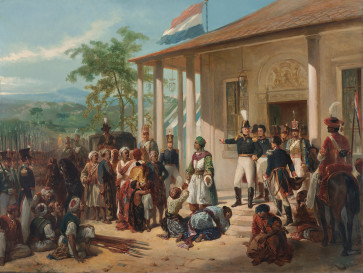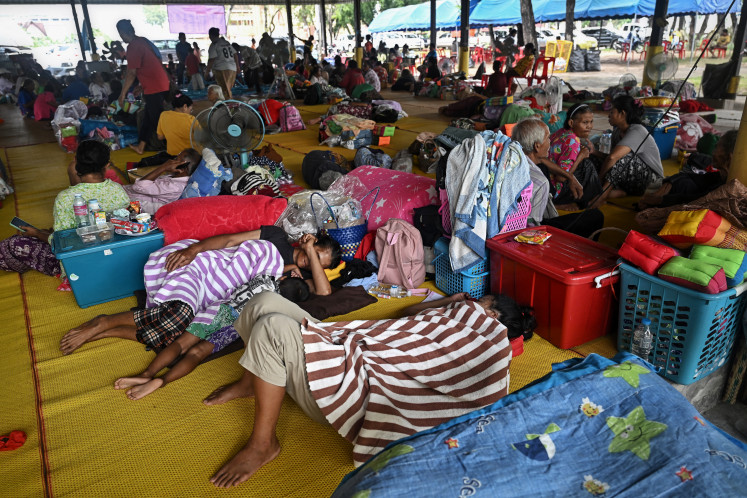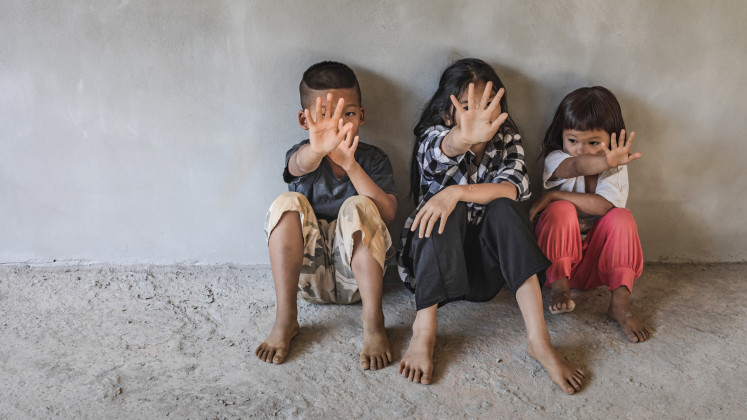Popular Reads
Top Results
Can't find what you're looking for?
View all search resultsPopular Reads
Top Results
Can't find what you're looking for?
View all search resultsKinship politics threatens democracy
What is interesting with regard to Indonesian democracy is that it paves the way for people to come to power through the use of family relationships, as seen in the clans of a number of governors, Ratu Atut Chosiyah, Syahrul Limpo, Sinyo Sarundajang and Sjachroedin ZP and many more at the regency or municipal levels across the nation
Change text size
Gift Premium Articles
to Anyone
W
hat is interesting with regard to Indonesian democracy is that it paves the way for people to come to power through the use of family relationships, as seen in the clans of a number of governors, Ratu Atut Chosiyah, Syahrul Limpo, Sinyo Sarundajang and Sjachroedin ZP and many more at the regency or municipal levels across the nation.
Just as these are prototypical kin relationships in politics, so is the Yudhoyono clan, as the President's relatives serve as House of Representatives lawmakers and are seeking reelection, benefiting from their family ties with him.
The country has established liberal democracy as indicated by direct elections for president, legislators, governors and regional heads. As a result, it has opened up wide opportunities for everyone to attain power with the help of lineage connections.
Kinship and politics are the essential subjects of political anthropology, and one is hardly able to explain the discipline clearly without addressing the relation between the two. Prominent anthropologist Robin Fox (1967) says: 'Kinship is to anthropology what logic is to philosophy or the nude is to art; it is the basic discipline of the subject.'
Kinship politics is commonly found in tribal societies across the world where kin genealogy is applied to determine the system of communal leadership. It is the traditional pattern of bequeathing political power among family members.
From the anthropological point of view, lineage has three main functions: (1) an instrument for strengthening societal ties and establishing social cohesion, as well as a catalyst for the conflict-resolution process; (2) political organization in which the leadership structure is dominated by some elite groups called episodic leaders, big men or tribal chiefs who portray themselves as a godfather-type figure; (3) the mechanism of elite circulation within traditional political systems controlled by exclusive family members, relying on unilineal descent associations (e.g. Donald Kurtz 2001).
Kinship politics is built based on the classic political principle: blood is thicker than water. It asserts that power should be distributed among family members.
For the sake of family security, power should not be seized from those who have kinship connections and must be circulated only among those who are tied by blood.
The concept is accepted by reference to the fact that politics is often replete with adversity, conflict, and betrayal, known as the Brutus syndrome. Not surprisingly, even within the system of modern democracy, most of Indonesia's politicians prefer to bestow political power on their kin groups by manipulating the democratic system. Politicians seem to put more trust in their own family members than others, because they are unlikely to betray them.
A number of pieces of anthropological literature (e.g. Turner 1966; Wolf 2001; Vincent 2002) have illustrated that kinship politics is usually associated with the domination of political resources and the possession of economic assets. Political resources may take the form of social organization, clan, family and lineage structures, or ethnic groups that can be utilized to gain and maintain power. Economic assets may take the form of land, plantations, factories, businesses or financial capital, which generate economic benefits for one's family members and kin groups.
In this sense, kinship politics plays a significant role in securing these political and economic resources so that power should always be kept by those who have associations by descent.
We have observed how political elites in the country practice kinship politics within the framework of a modern democratic system. They take advantage of procedural democracy.
Not surprisingly, nepotism and favoritism are widespread, and many politicians use the benefits of kinship to achieve public power regardless of their incompetence or lack of ability. They capitalize on kin connections in power struggles, while ignoring political credentials which are actually the basic requirement for becoming an authentic politician.
Political credentials can be gained through three ways. First, social-political activism makes it possible for someone to get public recognition and it may become the way through which he or she becomes a genuine politician with credibility and a great reputation. Second, education plays an important role in someone becoming what might be regarded as an intellectual-cum-politician through great achievements.
Third, someone may also achieve political credentials by taking these two routes combined: Becoming an educated individual and social activist who then turns to the world of politics.
What is perilous about kinship politics in the context of democracy is that many politicians, when accessing public power, rely merely on lineage connections ' not political credentials ' despite the lack of capacity. Kinship politics may threaten democracy in the sense that it disregards fair political contestation, as political and economic resources are dominated by the ascendant political clan.
But the most hazardous factor is that it leads to corruption, which obviously menaces democracy. What has happened in Banten is the perfect example of how kinship politics operates and results in illicit practices that harm democracy.
Indeed, it is ironic that while democracy seems to have thrived, kinship politics prevents the nation from developing a modern political system that relies on the principles of meritocracy, transparency, and accountability. Unlike modern democracy which esteems social-political pluralism and is open-associational in practicality, kinship politics maintains exclusive relations among family members.
Truly, it is very sad to witness that Indonesian politics ' that should be conducted in the interest of the public ' is viewed as a family business in which its members can claim political privileges to reach power by sacrificing the merit system. Kinship politics is an obstacle in the country's efforts to consolidate modern democracy.
__________________
The writer is an anthropologist by training who obtained a PhD degree from the University of Sussex in the United Kingdom, and is a senior researcher at the Institute of the Study for Advancement of Business Ethics (LSPEUI), Jakarta.










